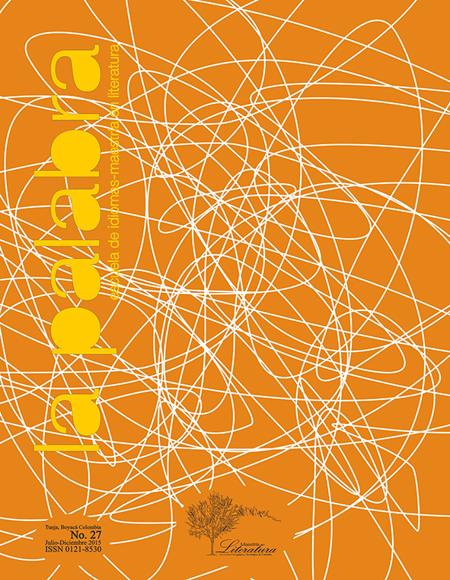Socialism and Identity in the Life and Works of Richard Wright

Resumo
Richard Wright was a pioneer in American Literature whose relationship with socialism helped to define him as a person and as a writer. The inspiration behind his literary accomplishments and their impact on his contemporaries can be understood by tracing two of the most important themes in his life, socialism and identity. This article describes the evolution of his relationship with socialism in order to better understand the writer and his best known works in their social and political context. This exercise can also help us to gain a clearer understanding of the cultural and social implications of socialist ideology in the United States after the First World War.
Palavras-chave
Richard Wright, communism, racism, politics, socialism
Biografia do Autor
Juan D. Gómez
Docente Instituto de Filosofía, Universidad de Antioquia. Miembro
del Grupo de Filosofía y Literatura. Miembro de la Modern Language Association.
Referências
- Brignano, R.C. (1973). Richard Wright: An Introduction to the Man and His Works. Pittsburgh, PA: University of Pittsburgh Press.
- Fabre, M. (1993). The Unfinished Quest of Richard Wright. Urbana-Champaign, IL: University of Illinois Press.
- Gallagher, K. (2009). Bigger’s Great Leap to the Figurative. In H. Bloom (Ed.), Bloom’s Modern Critical Interpretations: Richard Wright’s Native Son. (pp. 3-18). New York, NY: Infobase Publishing.
- Gayle, A. (1980). Richard Wright an Ordeal of a Native Son.New York, NY: Anchor Publishing.
- Hakutani, Y. (1996). Richard Wright and Racial Discourse. Missouri: University of Missouri Press.
- Howe, I. (1963, Autumn). Black Boys and Native Sons. Dissent, 353-368.
- Kinnamon, K. (Ed.). (1990). New Essays on Native Son. New York, NY: Cambridge University Press.
- Reilly, J. (Ed.). (1978). Richard Wright: The Critical Reception. New York, NY: Burt Franklyn and Company.
- Rowley, H. (2001). Richard Wright: The Life and Times. Chicago, IL: Chicago University Press.
- Wright, R. (1934, January). A Red Love Note. Left Front: 3.
- Wright, R. (1934, June). I Have Seen Black Hands. New Masses: 16.
- Wright, R. (1935, July). Between the World and Me. Partisan Review: 18-19.
- Wright, R. (1937). White Man Listen. Garden City, NY: Doubleday Press.
- Wright, R. (1940, June). I Bite the Hand that Feeds Me. Atlantic Monthly: 826-828.
- Wright, R. (1957). Pagan Spain. London, UK: The Bodley Head Press.
- Wright, R. (1961). Twelve Million Black Voices. New York, NY: Arno Press.
- Wright, R. (1983). American Hunger. New York, NY: Harper Press.
- Wright, R. (1989). Black Boy. New York, NY: Harper Perennial Press.
- Wright, R. (1993). Native Son: and How Bigger was Born. New York, NY: Harper Perennial Press.
- Wright, R. (1993). Uncle Tom’s Children. New York, NY: Harper Perennial.
- Wright, R. (1996). Eight Men: Stories by Richard Wright. New York, NY: Harper Perennial.
- Wright, R. (1937, Fall). Blueprint for Negro Writing. New Challenge, 2, 53–65.
- Wright, R. (2003). The Outsider. New York: Harper Perennial Press.